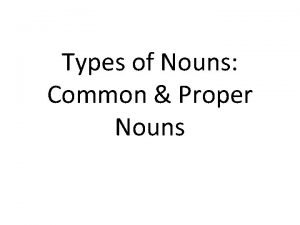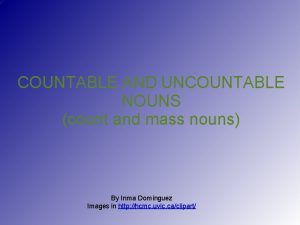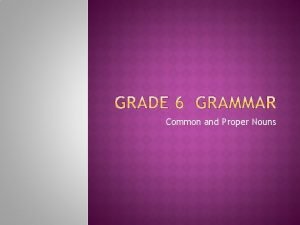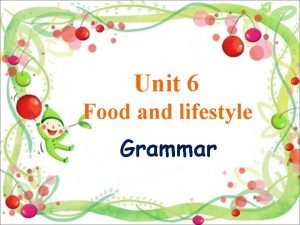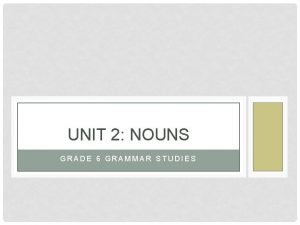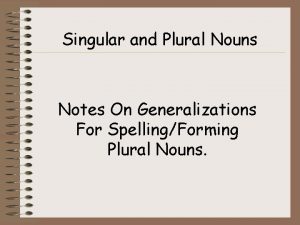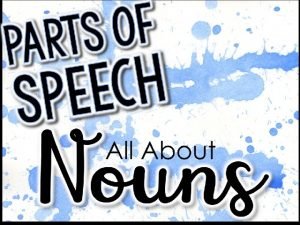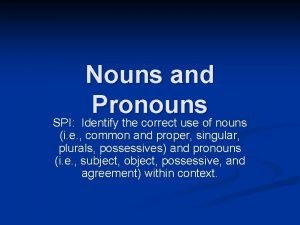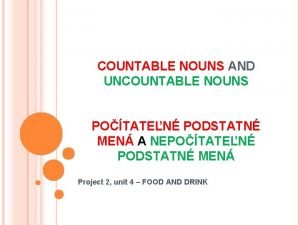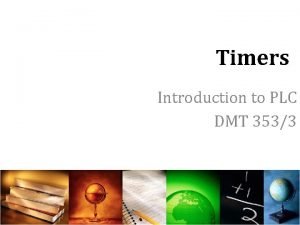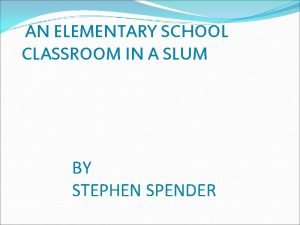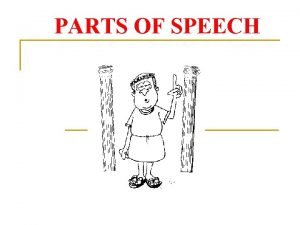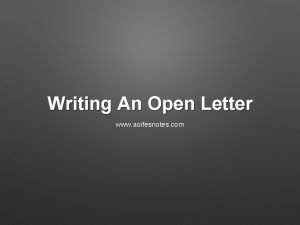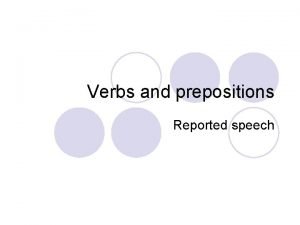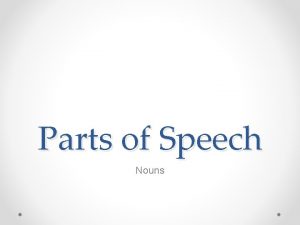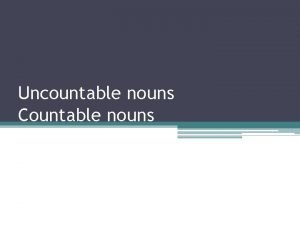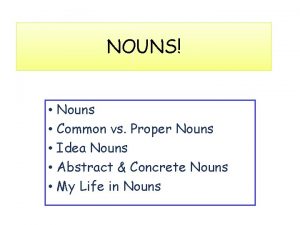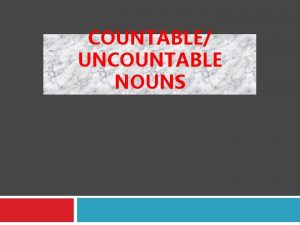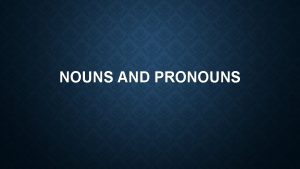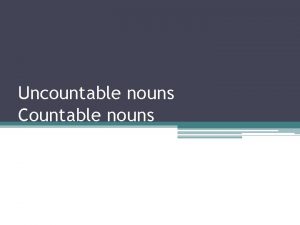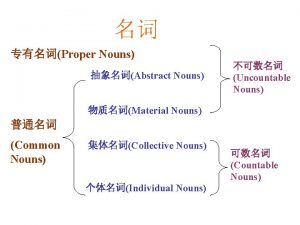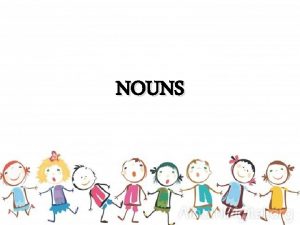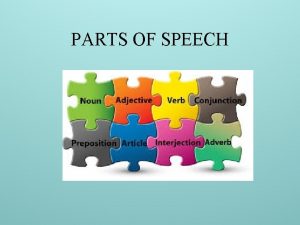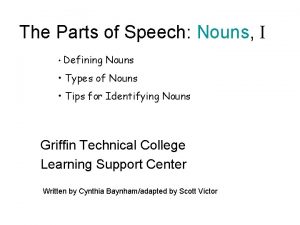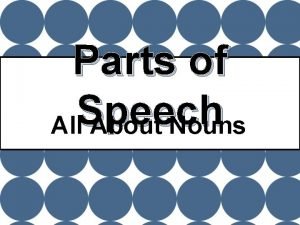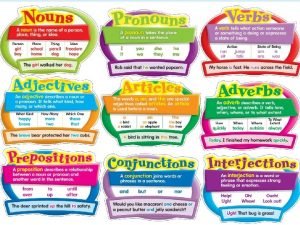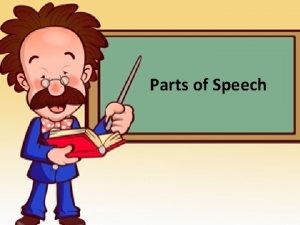PARTS OF SPEECH PARTS OF SPEECH OPEN NOUNS


















- Slides: 18

PARTS OF SPEECH

PARTS OF SPEECH OPEN NOUNS VERBS CLOSED ADJECTIVES ADVERBS PREPOSITIONS CONJUNCTIONS DETERMINERS AUXILIARIES

A NOUN n n a word which names a person, place or thing proper nouns and common nouns

Most nouns are common nouns and do not begin with a capital letter. Proper nouns are nouns which begin with a capital letter because it is the name of a specific or particular person place or thing. n If you see a word beginning with a capital letter in in the middle of a sentence, it is probably a proper noun. n n n n n Mexico John F. Kennedy Atlantic Ocean February Monday New York City Susan Maple Street Burger King

Many nouns have a special plural form if there is more than one. n n For example, we say one book but two books. Plurals are usually formed by adding an -s (books) or -es (boxes) some plurals are formed in different ways (child - children, person - people, mouse - mice, sheep - sheep)

A VERB n n a word which shows action or state of being every sentence must have a verb

The dog bit the man. n bit is the verb and the word which shows the action of the sentence.

The man is sitting on a chair. n even though the action doesn't show much activity, sitting is the verb of the sentence.

She is a smart girl. n n there is no action but a state of being expressed by the verb is. the word be is different from other verbs in many ways but can still be thought of as a verb.

Verb ‘To Be’ Subject Present Past Perfect (past participle) Progressive (present participle) I am was have been am being We are were have been are being You are were have been are being They are were have been are being He is was has been is being She is was has been is being It is was has been is being

verbs change their form n n n Sometimes endings are added learn - learned sometimes the word itself becomes different teach-taught The different forms of verbs show different meanings related to such things as : q q tense (past, present, future) person (first person, second person, third person) number (singular, plural) voice (active, passive)

An Adjective n n modifies a noun or a pronoun by describing, identifying, or quantifying words. An adjective usually precedes the noun or the pronoun which it modifies.

q q q q The truck-shaped balloon floated over the treetops. Mrs. Morrison papered her kitchen walls with hideous wall paper. The small boat foundered on the wine dark sea. The coal mines are dark and dank. Many stores have already begun to play irritating Christmas music. A battered music box sat on the mahogany sideboard. The back room was filled with large, yellow rain boots.

ADJECTIVES

An Adverb n n n can modify a verb, an adjective, another adverb, a phrase, or a clause. An adverb indicates manner, time, place, cause, or degree and answers questions such as "how, " "when, " "where, " "how much". Unlike an adjective, an adverb can be found in various places within the sentence.

The seamstress quickly made the mourning clothes. n In this sentence, the adverb "quickly" modifies the verb "made" and indicates in what manner (or how fast) the clothing was constructed.

The midwives waited patiently through a long labour. n Similarly in this sentence, the adverb "patiently" modifies the verb "waited" and describes the manner in which the midwives waited.

The boldly spoken words would return to haunt the rebel. n In this sentence the adverb "boldly" modifies the adjective "spoken. "
 영국 beis
영국 beis Countable and uncountable nouns apple
Countable and uncountable nouns apple Shelf is common or proper noun
Shelf is common or proper noun Mass nouns examples
Mass nouns examples Proper noun for a river
Proper noun for a river Four tomatoes
Four tomatoes Underline the nouns class 4
Underline the nouns class 4 Plural words list
Plural words list What is count and noncount nouns
What is count and noncount nouns Abrigo es singular o plural
Abrigo es singular o plural Brainpop jr nouns
Brainpop jr nouns Potaten
Potaten Compound learning
Compound learning On delay timer coil symbol
On delay timer coil symbol Open hearts open hands
Open hearts open hands Explain awarding the world its world
Explain awarding the world its world There is there are part of speech
There is there are part of speech Format of open letter
Format of open letter Reported speech prepositions
Reported speech prepositions


